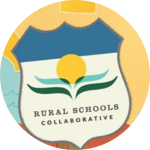About This Project
The role of the school principal has long been positively associated with student achievement. In rural areas in the U.S. retention of principals is a documented issue. I would like to conduct a study that deeply examines geographic and community context as potential influences on the leadership practices for rural principals. Knowledge gained from this study will provide critical guidance for developing principal preparation and retention programs.
Ask the Scientists
Join The DiscussionWhat is the context of this research?
Close to 300,000 pk-12 public school students in the New England (NE) region of the United States are enrolled in schools identified as rural. Across the region there are various rural contexts, each can be described through its primary revenue stream. The planned study will be conducted over 3 years with each of the years focusing on a different rural context in the NE region. Revenue streams will be defined by 3 categories of industry: primary or resource extractive industries, secondary or manufacturing industries, tertiary or the service sector industries. These 3 have been selected due to their prevalence in rural NE and will each provide context for this study. The current project proposal is for the completion of year 1 of the study and focuses on tertiary industry.
What is the significance of this project?
The critical nature of the school principal turnover issue in rural schools has been well documented. The knowledge gained from this study will develop a deeper understanding of the instructional leadership practice of principals in rural schools and how geographic and community context influence their practice. Armed with that knowledge school district decision makers will be better equipped to develop hiring processes and induction programs that effectively address the issue of principal retention. Additionally, institutions of higher education will be better informed about the types of resources that need to be developed to address the preparation needs of principals and the types of support needed for them once they are in the field.
What are the goals of the project?
The proposed project seeks to develop a deep understanding of the relationship between geographic and community context, that is defined by tertiary industry, and the instructional leadership practice of rural school principals in New England. In order to gather rich data and to develop a deep understanding of the community and geographic context each principal works in, the strategy of immersion will be utilized. Through this strategy I will visit each of the two principals in the study three times during the school year, staying for one week each time. Data will be collected through field notes, observations, in-depth interviews, focus groups, and relevant documents, including social media postings. The first two immersions have been completed.
Budget
The design for this study includes sustained immersion experiences in the communities the participating principals work in. Subsequently, the funding request is solely made for support for travel. Partial funding for this project was provided through the Plymouth State University Faculty Research and Creativity Fund. The funding requested through the current project proposal will support the completion of the project. Data that has been analyzed from the first 2 immersion experiences is beginning to suggest that in communities with strong tertiary industries the rural context influences the instructional leadership practice of school principals. There is also an emerging indication that geographic context influences instructional leadership practices. Completion of this project will provide valuable information to the field about the rural school principalship and will provide a rich source of data that will inform years 2 and 3 of the complete 3 year study.
Endorsed by
 Project Timeline
Project Timeline
Recruitment for participants for this project began in January of 2018. Participant identification and a schedule for immersion visits was completed by June of 2018. The first immersion experiences for both site 1 and 2 were completed in September of 2018. The second in January of 2019. The final immersions for both sites is scheduled for June of 2019. Report writing on this project will take place during the summer of 2019 and will be shared with backers and the field.
Feb 28, 2019
Provide participating principals with transcripts from second immersion for member checking
Mar 14, 2019
Project Launched
May 19, 2019
Travel to Site 2 for final immersion
Jun 09, 2019
Travel to Site 1 for final immersion
Jul 08, 2019
Provide participating principals with transcripts from final immersion for member checking
Meet the Team
Affiliates
Linda L. Carrier
I am an Assistant Professor of Educational Leadership at Plymouth State University. As part of my role, I facilitate the Rural Educational Leaders Network (RELN). Through my teaching of graduate students and work with RELN, I work to ensure that our rural schools are effectively preparing the next generation so that our rural communities will be sustainable.
As a researcher, my work includes case study, multi-case study, and portraiture qualitative methodologies. I am particularly interested in formal school leaders and their practice of instructional leadership (IL). My past projects include studying school principals that have been formally identified as instructional leaders and the development of data leadership teams in schools. Throughout my research, I have seen the need to deeply understand the role of school leader in order to both develop preparation programs that are relevant for 21st century school leaders and develop systems that support improved retention of these individuals in the pk-12 school system.
My prior research has resulted in publication in both peer-reviewed journals and book form; and, I have presented nationally on the IL of principals and the need for the development of school-wide data teams in small rural schools. The proposed project is part of a larger 3 year study I am conducting that will deeply examine the influence of geographic and community context on the IL of rural school principals in New England (NE). This body of research will provide important insights about the relationship between the systems that makes up the broader community and the leadership of the school. The knowledge gained through this will be valuable as communities, regional principal professional organizations, and institutes of higher education continue to work toward developing strategies to address the issue of principal retention in NE’s rural schools.
Project Backers
- 3Backers
- 3%Funded
- $80Total Donations
- $26.67Average Donation


